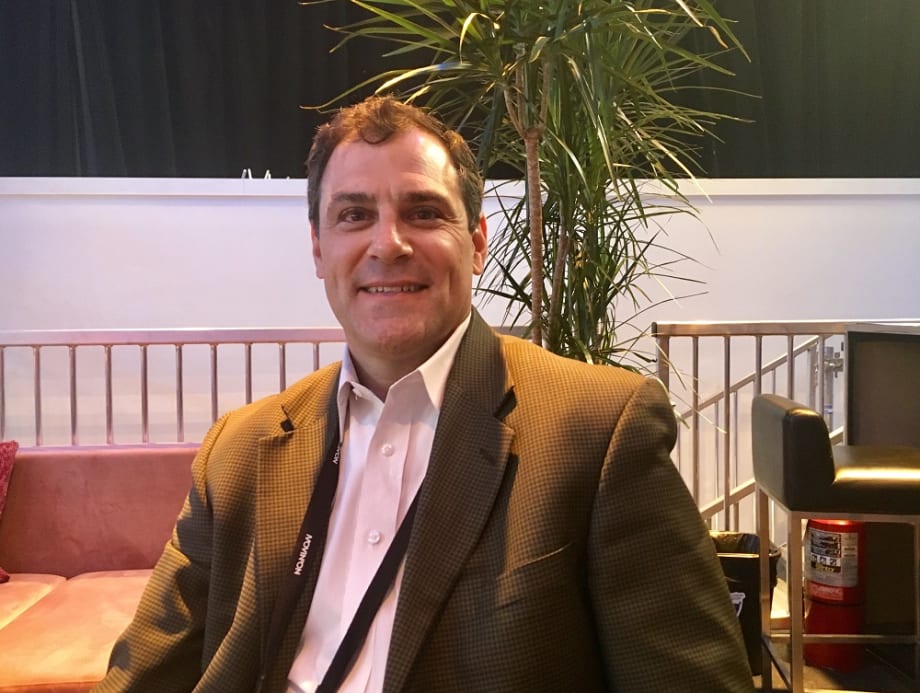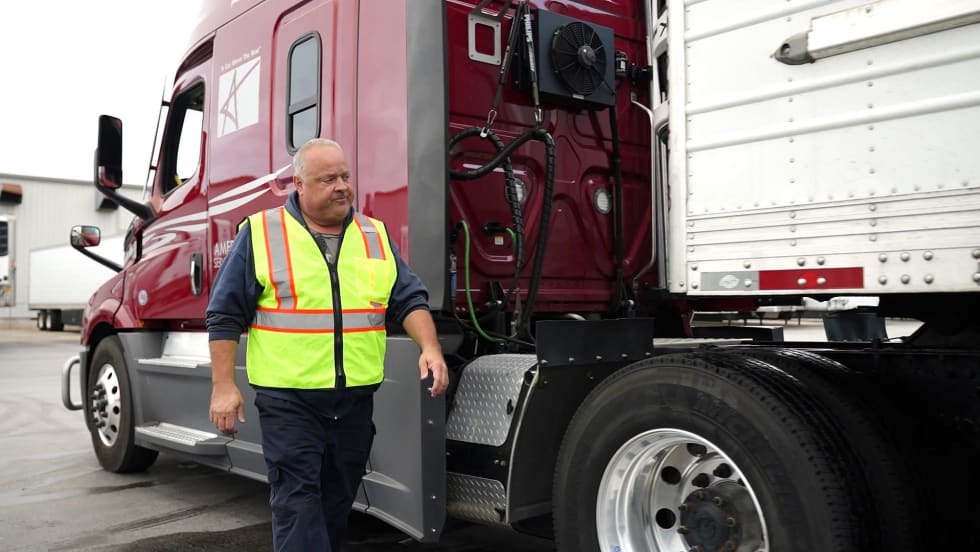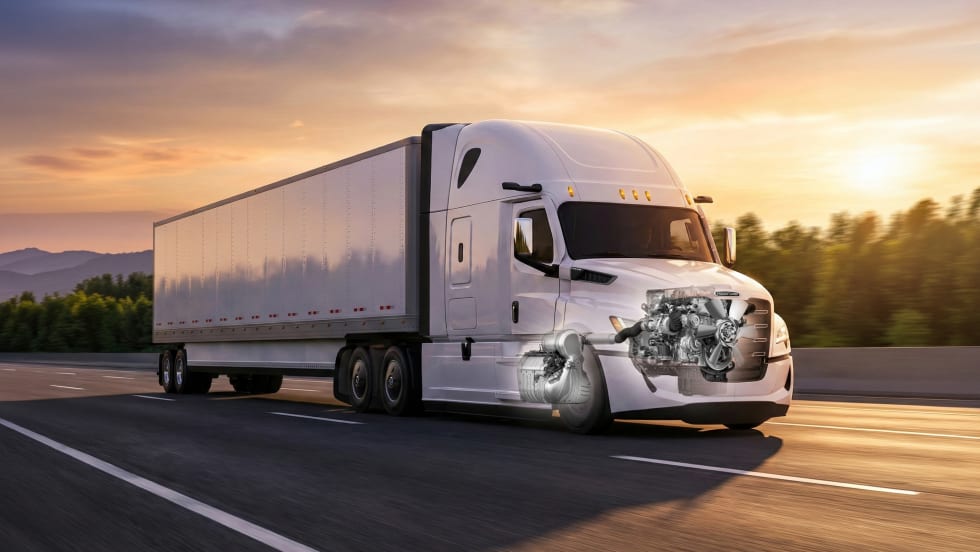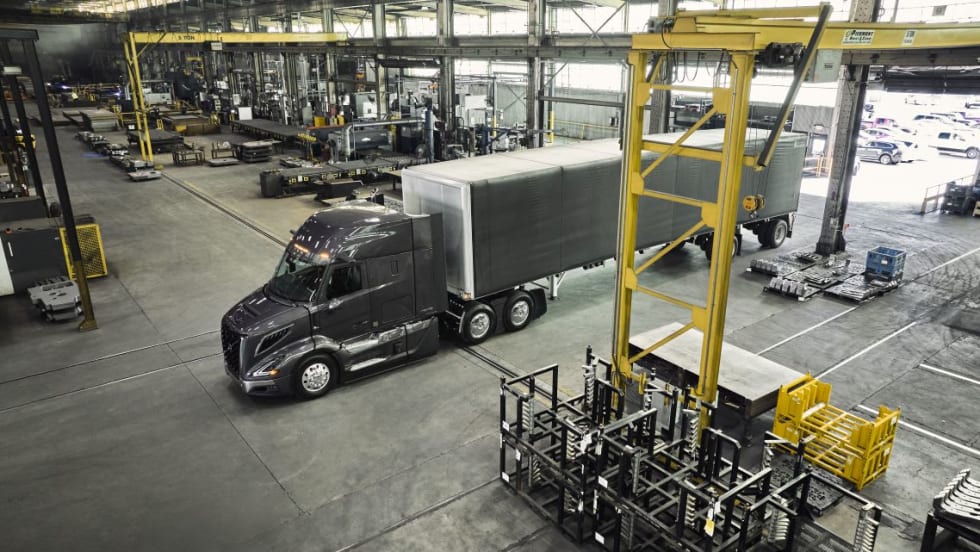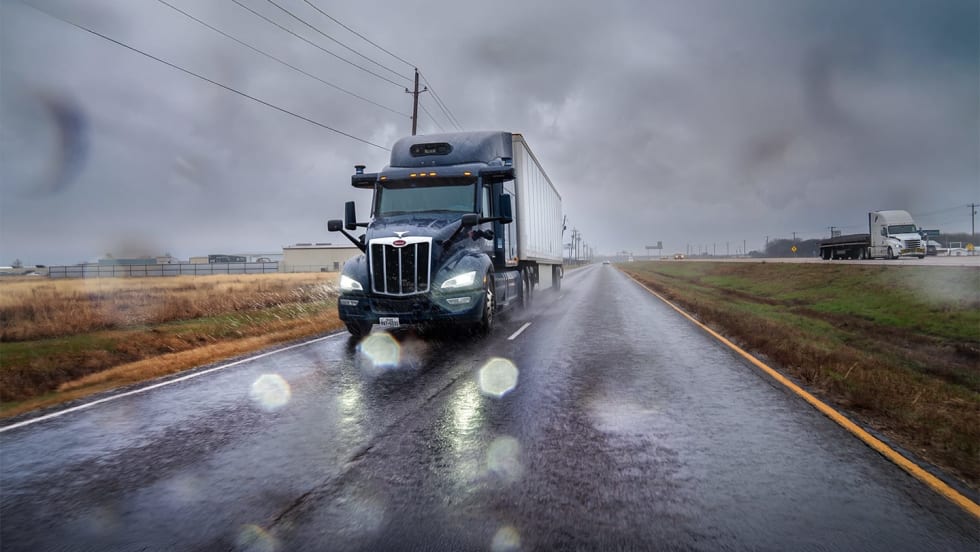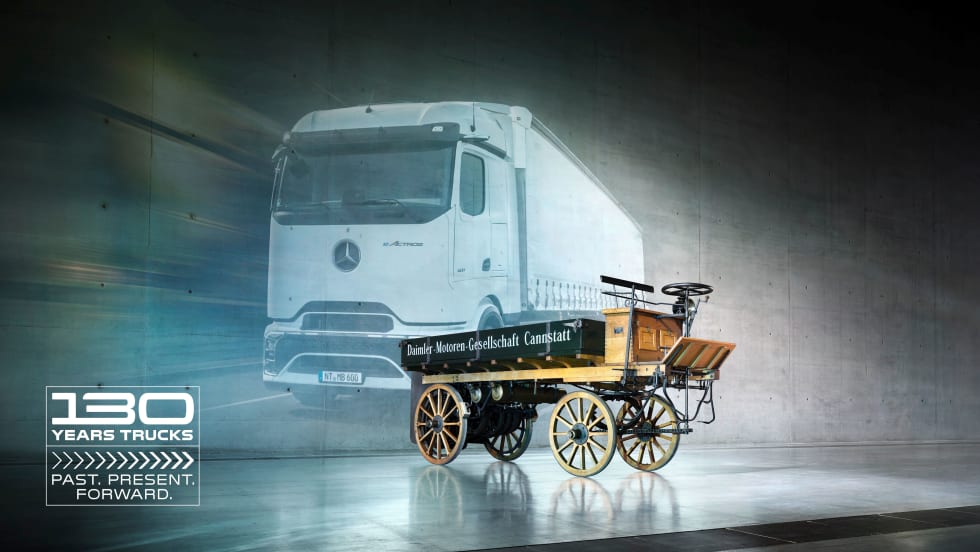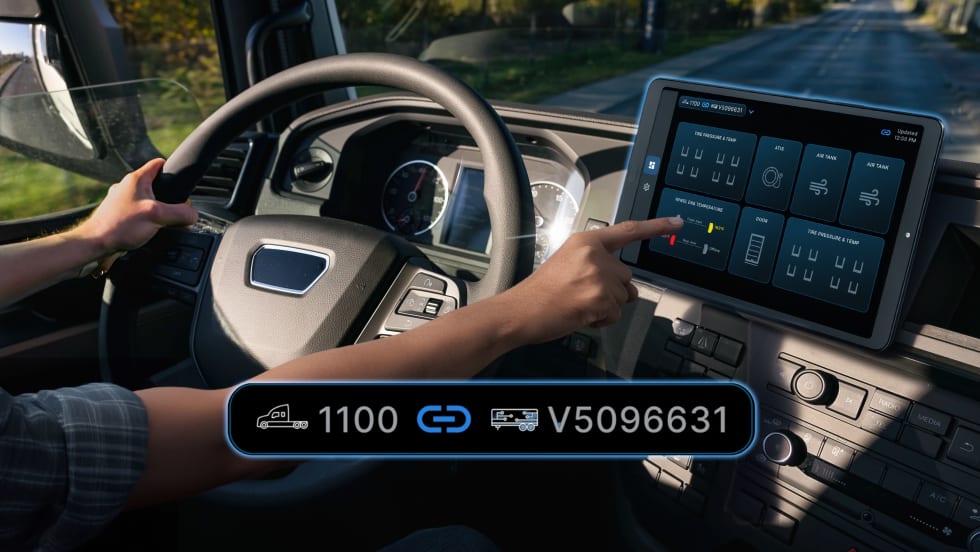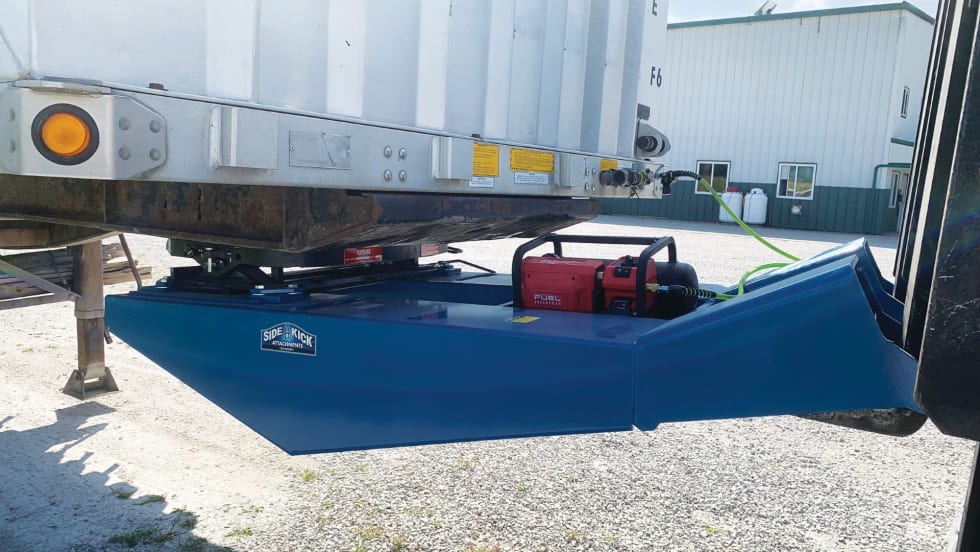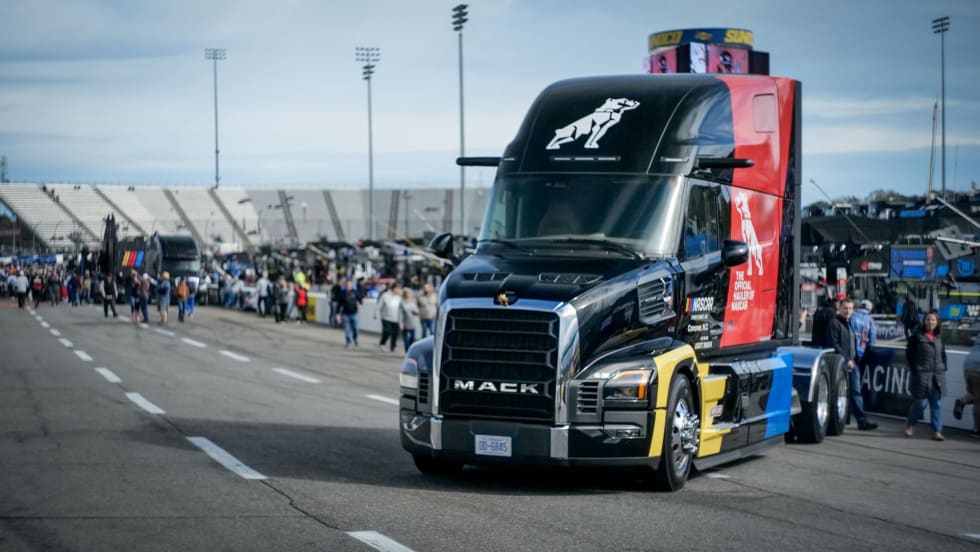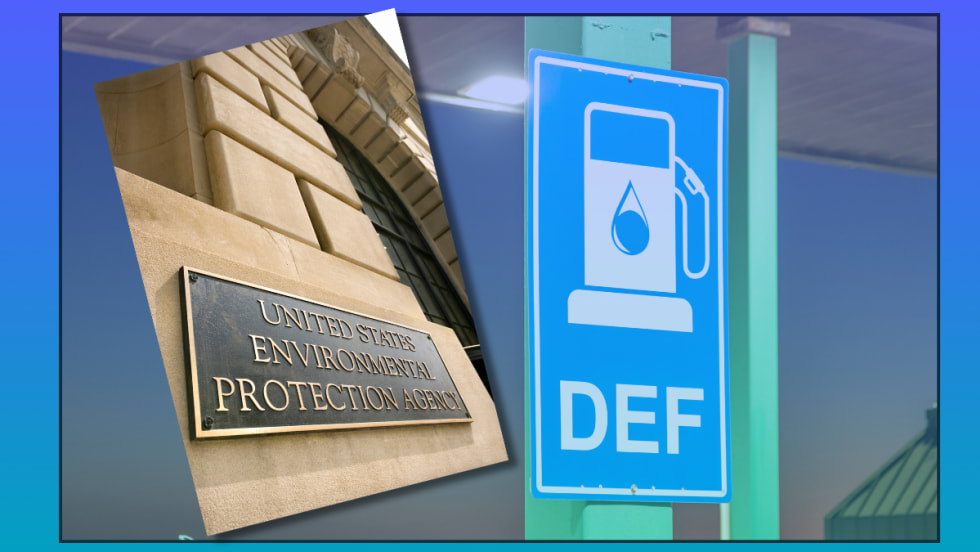These days, the tires that have made Michelin a leading global brand over the course of well over 100 years are just one aspect of its worldwide operations, not to mention its ambition to be a thought leader in the advancement of sustainable mobility around the world.
Reflecting that commitment in highly practical terms is the France-based company’s new global services and solutions unit. According to Michelin’s Ralph Dimenna, the “aim is to provide solutions that are based on customer feedback and accurate information.” Named Michelin Group’s senior vice president of Global Services and Solutions in January, he heads up the newly formed worldwide business line out of Greenville, S.C.
Dimenna spoke with HDT on May 31 amidst the multilingual and collaborative high-concept hubbub that is Movin’ On, the Michelin global sustainable mobility summit being held in Montreal for the second year in a row. The 25-year veteran of Michelin, whose prior position was COO of Michelin Americas Truck Tires, said “the event is meant to be fun. Whether I’m talking with startups or fleets here, we’re all talking about how we can help each other do business better. So, I’m here to learn how we can package different technologies for the benefit of customers.”
Comparing making tires to offering services and solutions, Dimenna said that the key difference is a given tire must be engineered specifically for its fitment, by vehicle, location, duty cycle, etc., while “many of the other needs of customers [across markets] are absolutely the same, whether that’s increasing fuel efficiency or reducing other operating costs, or improving safety.”
Indeed, he said the operation he leads is charged with developing services and solutions for any need that is “beyond tires” in markets across the globe. As Dimenna sees it, this greater emphasis on non-tire offerings reflects Michelin Group’s decision “to put the customer back in the center of what the company does—and to do that quickly.”
He added that the mandate now is to “bring out new solutions not in years, but in months or just weeks. Because many of these customer needs are universal, our solutions may only need to be adjusted slightly from one place to another. That means we can expand services fairly easily.”
What That Means for Michelin and Trucking in North America
So far, here in North America alone, the business unit’s offerings are as diverse as a targeted telematics solution and a suite of simple but durable trailer aerodynamic devices. He says the value of telematics is that it leverages data to give truck fleets “the value that comes from actionable information. Telematics essentially is the conduit for [vehicle] information to move to the cloud and then to a fleet management system, where it can inform decisions.” Wanting to further aid customers that Michelin felt were underserved, last year it acquired NexTraq, a leading provider of GPS-based management systems geared to small fleets (2 to 50 vehicles) that primarily operate Class 3-5 medium-duty trucks.
But not every solution developed or championed need be digital. Dimmena also pointed to how Michelin has responded to over-the-road customers who expressed a need for “simple and durable” trailer aerodynamic devices by rolling out earlier this year its Energy Guard “suite of solutions” that is designed to boost fuel efficiency without increasing maintenance costs and without requiring drivers to activate anything.
The Energy Guard package is trailer-agnostic and consists of a trailer skirt (made of resilient composites and flexible brackets so it bends out of the way when striking objects), trailer-end fairings, aerodynamic mud flaps that are porous to air and water, and a patent-pending wake reducer tab at the rear. Dimenna said the wake reducer eliminates the need for typical “boat tail” fairings that drivers must deploy and close up as required “yet delivers 80% of the [MPG] gain of a boat tail.”
“Energy Guard came out of years of speaking with fleets that told us that trailers pose an aerodynamic challenge,” Dimmena said. “The main problem is the maintenance of the devices [as they are easily damaged.] Also, not having to ask drivers to activate anything is a plus for attracting and keeping drivers.”
Looking down the road, he pointed out that the business unit has “proofs of concept under way with a lot of technology in pilot-mode testing with various fleets, just as Energy Guard went through before we released it.”
Touching on the sustainability goal for tires stated by Michelin at the Movin’ On Conference, Dimenna added that “even as we work to make tires more environmentally sustainable, we must still provide the performance needed to operate in the most efficient and safest manner possible. That is an engineering challenge we are prepared to meet.”




